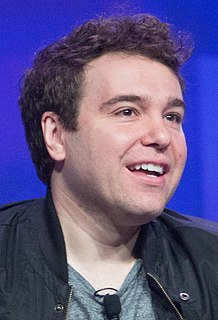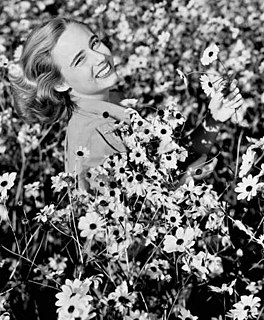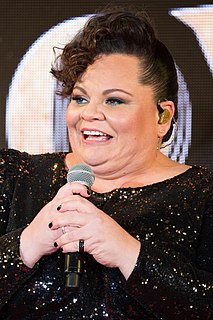A Quote by Ruth Rendell
I believe the most important thing you can do in any kind of novel is to make your reader want to go on with it and want to know what happens next.
Related Quotes
Why are murder mysteries so popular? There's a 3-part "formula" (if you want to call it that) for a genre novel: (1) Someone the reader likes and relates to (2) overcomes increasingly difficult obstacles (3) to reach an important goal. The more important the goal, the stronger the novel. And the most important goal that any of us have is survival. That's why murder mysteries are more gripping than a story titled "Who Stole My TV Set.
If only you’d remember before ever you sit down to write that you’ve been a reader long before you were ever a writer. You simply fix that fact in your mind, then sit very still and ask yourself, as a reader, what piece of writing in all the world Buddy Glass would most want to read if he had his heart’s choice. The next step is terrible, but so simple I can hardly believe it as I write it. You just sit down shamelessly and write the thing yourself. I won’t even underline that. It’s too important to be underlined.
I'm not entirely sure what a historical novel absolutely has to be, but you don't want a reader who loves a very traditional historical novel to go in with the expectation that this is going to deliver the same kind of reading experience. I think what's contemporary about my book has something to do with how condensed things are.
Here's what I want from a book, what I demand, what I pray for when I take up a novel and begin to read the first sentence: I want everything and nothing less, the full measure of a writer's heart. I want a novel so poetic that I do not have to turn to the standby anthologies of poetry to satisfy that itch for music, for perfection and economy of phrasing, for exactness of tone. Then, too, I want a book so filled with story and character that I read page after page without thinking of food or drink because a writer has possessed me, crazed with an unappeasable thirst to know what happens next.
Actors go, 'I just want to act.' And I say to them, 'You know, stop for a second and think about what charges you up the most. Do you want to be on the stage, do you want to be in film, do you want to be a comic actor? Do you just want to make it for the money and capitalize on your look and do commercials and soaps?'
If for you the most important thing is to make a lot of money, then you don't want to take a certain type of risk. If, on another hand, the most important thing to you is to make people around you have a more fulfilled life, then there is a different set of things that are important to you. Unless you really know that about yourself, you will never be able to appropriately assess risk.
The first rule is you have to create a reality that makes the reader want to come back and see what happens next. The way I tried to do it, I'd create characters that the reader could instantly recognize, and hopefully bond with, and put them through situations that keep the reader on the edge of their seat.
An ex-girlfriend once got upset when I told her that music is the most important thing in my life. It's more important than anyone else could ever be. I don't want to be overly dramatic and say it's the only thing that gets me up and keeps me going. But people in your life come and go. As you go through your life, you make friendships, you break friendships, you have relationships. Music is the one thing I've always been able to rely on.





































